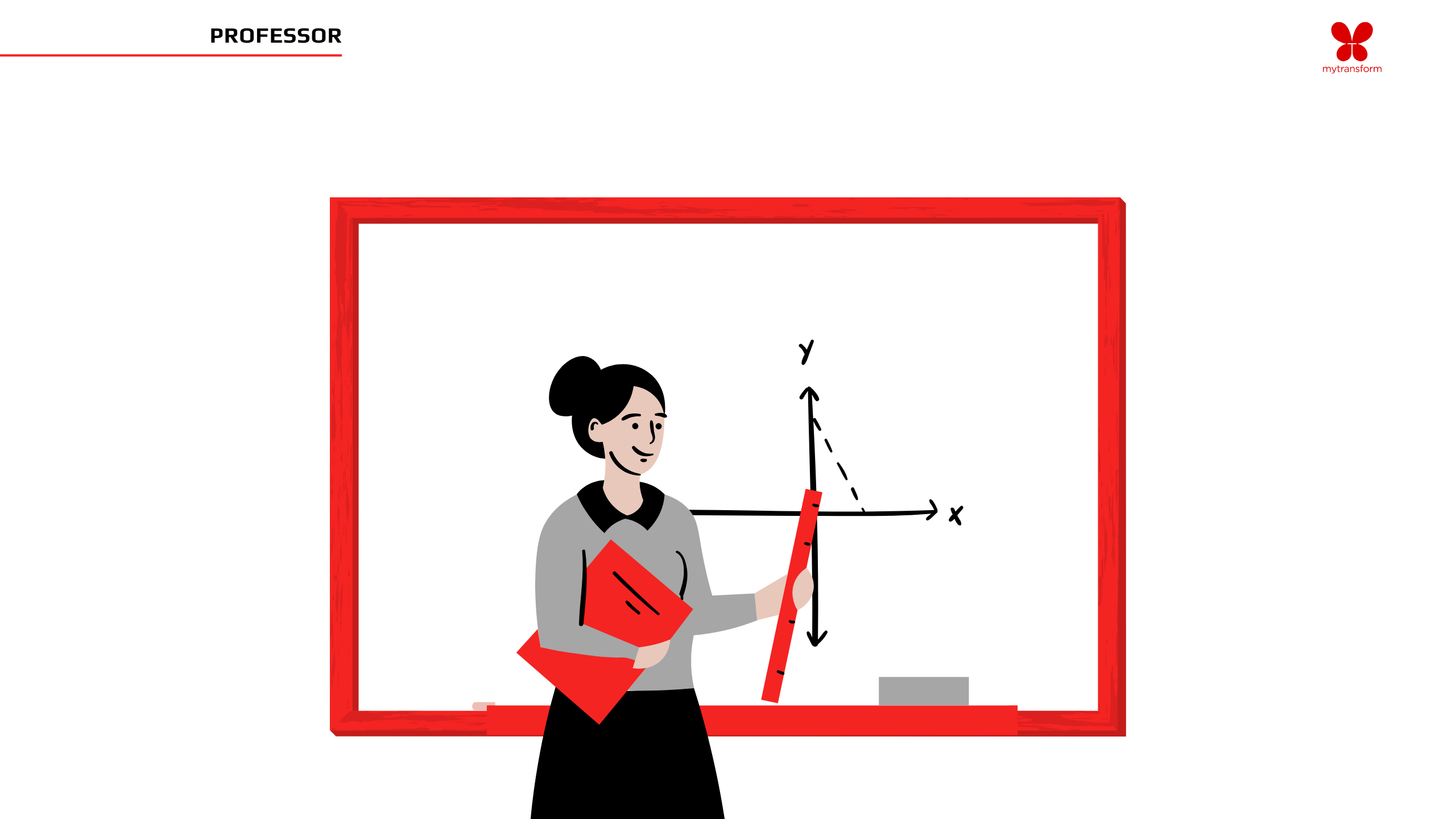
A professor is a highly educated individual who teaches and conducts research at a college or university.
Professors are experts in their field of study and are responsible for sharing their knowledge with students through lectures, seminars, and other forms of instruction.
Professors play a key role in the higher education system and are highly respected members of the academic community. If you are wondering “How to become a Professor in India?”, this article will provide all the details about the requirements to be a professor, professor qualification in India, salary, etc.
Who Is A Professor?
A professor is an educator who teaches university students in a specific field of study and conducts research in their area of expertise.
They may be responsible for preparing and delivering lectures, grading papers, and exams, providing academic advice to students, conducting research, and publishing their findings in academic journals.
Professors are expected to maintain a high level of expertise in their field and to contribute to their discipline through their teaching and research.
Types Of Professor In India
In India, there are various types of professors that can be found at colleges and universities. Some common types of professors in India include:
1. Associate Professor:
An associate professor’s job involves attending conferences, conducting research, teaching, resolving administrative issues, and overseeing students’ coursework, among other things.
2. Assistant Professor:
An assistant professor is responsible for teaching and course design as well as other academic responsibilities like course management, lecturing, and lesson preparation. You would also be responsible for keeping track of all of the academic activities that the senior professor assigns to his students.
3. Professor:
A professor’s job involves instructing university students in a specific field of study. A professor is an expert in a particular field of study who also conducts research and studies in that field.
4. Researcher:
Researchers are required to perform research, take tests and surveys, and write articles about their field of expertise.
5. HOD:
An education department at a university or higher education institution is governed by a HOD. You would be in charge of leading and managing that department.
Role Of A Professor
The role of a professor is to teach courses and conduct research in a particular subject area at a college or university.
Professors are typically responsible for preparing and delivering lectures, grading papers and exams, and providing academic advising to students.
They may also be expected to conduct research and publish their findings in academic journals, as well as participate in departmental and university committees and service activities.
The specific responsibilities of a professor can vary by institution and by subject area, and may also include administrative duties such as departmental leadership or curriculum development.
Eligibility To Become A Professor
To become a lecturer in India, you must meet the following eligibility criteria:
-
- You must have passed Classes 10 and 12 or an equivalent qualification from a recognized institution.
-
- You must have received a post-secondary education degree from a recognized institution.
-
- You may also study for a Ph.D. degree if certain institutes require one.
-
- You must obtain a qualifying score on the UGC NET/CSIR NET or an equivalent test. NTA exams can be taken to apply to state colleges and universities as well.
Qualifications Of A Professor
To become a professor in India, the major qualifications required to become a professor are given below
-
- Bachelor’s degree in any discipline
-
- Master’s degree with at least 55% marks
-
- Pass the National Eligibility Test (NET)
-
- Obtain a doctorate degree (PhD)
-
- It is preferable to gain some experience.
Skills Required to Become A Professor
Some skills that may be useful for becoming a professor include:
-
- Strong communication and teaching skills
-
- Ability to conduct research and analyze data
-
- Ability to write and publish academic papers
-
- Ability to work independently and manage time effectively
-
- Ability to work well with others as part of a team
-
- Strong organizational and problem-solving skills
-
- Ability to adapt to new situations and challenges
-
- Strong work ethic and a dedication to their field of study.
How To Become A Professor In India? A Step-by-Step Guide
Here is a step-by-step guide on how to become a professor in India:
1. Earn a Bachelor’s Degree:
The first step towards becoming a professor in India is to earn a bachelor’s degree in a field related to the subject you wish to teach. A bachelor’s degree typically takes four years to complete and provides a strong foundation in the subject area.
2. Earn a Master’s Degree:
After completing a bachelor’s degree, you may choose to pursue a master’s degree in your field of interest. A master’s degree typically takes two years to complete and provides more advanced knowledge and skills in the subject area.
3. Earn a PhD:
To become a professor in India, you will typically need to earn a PhD in the subject area you wish to teach. A PhD is an advanced degree that is earned by completing a program of original research and writing a dissertation. The process of earning a PhD can take several years to complete.
4. Gain Teaching or Research Experience:
To become a professor in India, you may also need to gain teaching or research experience. This can be done through internships, assistantships, or other types of work in academia.
5. Apply for Faculty Positions:
Once you have completed your education and gained relevant experience, you can begin applying for faculty positions at colleges and universities in India. The specific requirements for becoming a professor can vary by institution and subject area, so it is important to research the specific requirements for the positions you are interested in.
6. Meet the Qualifications for Appointment:
To be appointed as a professor in India, you will typically need to meet the qualifications set by the University Grants Commission (UGC), which include having a PhD or equivalent degree in the relevant discipline and a minimum of 10 years of experience in teaching or research.
7. Continue Learning and Staying Current in your Field:
Once you become a professor in India, you will be expected to continue learning and staying current in your field. This may involve participating in professional development opportunities, conducting research, and publishing your findings in academic journals.
Salary Of A Professor In India
The salary of a professor in India can vary widely depending on factors such as the type of institution, the level of experience, and the subject area. Generally, professors at public universities in India tend to earn less than those at private institutions.
According to data from the University Grants Commission (UGC), the minimum salary for a professor at a public university in India is INR 1,31,400 per month.
However, this amount can increase based on the length of service and performance. Professors at private institutions may earn higher salaries, but it is difficult to determine an exact amount as it can vary significantly.
It is also worth noting that the salary of a professor in India may be affected by factors such as the location of the institution and the cost of living in that area. Additionally, professors who hold additional administrative roles or have specialized skills or expertise may earn higher salaries.
Pros and Cons of Being A Professor
Pros of Becoming A Professor
Some potential pros of becoming a professor include the opportunity to work in a field you are passionate about, the opportunity to mentor and inspire students, the opportunity to conduct research and contribute to your field, the opportunity to work with colleagues and be a part of a scholarly community, and the potential for job security and advancement. Additionally, professors may have the opportunity to work flexible schedules and have a good work-life balance.
Cons of Becoming A Professor
Some potential cons of becoming a professor include the long and competitive path to a faculty position, the high levels of responsibility and expectations placed on professors, the heavy workload and long hours, the pressure to continually publish and stay current in the field, and the potential for low pay and limited benefits at some institutions. Additionally, professors may experience stress and burnout due to the demands of the job.
Summary
To become a professor in India, you will typically need to earn a bachelor’s degree, a master’s degree, and a PhD in the subject area you wish to teach.
You may also need to gain teaching or research experience. The specific requirements for becoming a professor can vary by institution and subject area, and competition for faculty positions can be intense.
Once you become a professor, you will be expected to teach courses, conduct research, and participate in service activities at your institution.
The path to becoming a professor can be long and challenging, but many people find it a rewarding and fulfilling career.
Frequently Asked Questions
To become a professor in India, you need a bachelor’s degree, a master’s degree with at least 55% marks, to pass the National Eligibility Test (NET), and to obtain a PhD.
It is also preferable to have some experience.
To be considered for a full-time professor position, you must have completed a bachelor’s degree (three or four years), a master’s degree (two years), and have passed competitive exams at the state or national level.
It is necessary to hold a PhD to become a professor.
It is not accurate to say that one is necessarily better than the other. A PhD is an advanced degree that is earned by completing a program of original research and writing a dissertation.
A professor is a person who teaches at a college or university, typically holding a PhD or other advanced degree in their field. Both can be rewarding and fulfilling career paths, but they involve different types of work and have different requirements.
Obtaining a PhD can be a challenging and demanding process that requires a significant amount of hard work, dedication, and discipline.
It involves conducting original research, writing and defending a dissertation, and meeting other requirements set by the institution.
A PhD, or Doctor of Philosophy, is an advanced degree that is earned by completing a program of original research and writing a dissertation.
A professor is a person who teaches at a college or university, typically holding a PhD or other advanced degree in their field.
Being a professor can be a stressful job due to the high level of responsibility and the expectations placed on them to perform well in teaching, research, and service.
In India, an assistant professor is a faculty member who has completed a PhD and is responsible for teaching, research, and service at a college or university. A lecturer is typically a non-tenure track faculty member who is responsible for teaching, but may not have the same level of research and service expectations as an assistant professor.
The salary of a university professor in India can vary widely depending on factors such as the type of institution, the level of experience, and the subject area.
The minimum salary for a professor at a public university in India is INR 1,31,400 per month.
Read the above article in detail to know how to become a professor in India.




